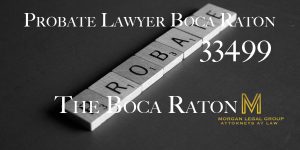Initiating the Probate Process
Understanding Probate
Probate is a legal process that occurs after an individual passes away, and it involves the distribution of their assets and the settlement of their debts. This process is supervised by the court to ensure that the deceased person’s wishes, as outlined in their will or according to state law, are carried out correctly.
Initiating the probate process is the first step in settling a deceased person’s estate. It can be a complex and lengthy procedure, but understanding how it works is crucial, especially if you are an executor or a beneficiary of the estate.
Key Terms in Probate
Before we dive into the process of initiating probate, let’s familiarize ourselves with some key terms that are commonly used in probate proceedings:
1. Decedent:
The person who has passed away and whose estate is undergoing probate is referred to as the decedent.
2. Executor:
The executor is the person named in the decedent’s will to oversee the probate process. If there is no will or no executor is named, the court may appoint an administrator.
3. Administrator:
If there is no will or if the named executor is unable or unwilling to serve, the court may appoint an administrator to manage the estate.
4. Beneficiary:
A beneficiary is an individual or entity named in the decedent’s will (or determined by state law) to receive assets from the estate.
5. Probate Assets:
Probate assets are the assets owned solely by the decedent that require court supervision for distribution. These assets do not pass automatically to beneficiaries and may include real estate, personal property, and bank accounts.
Step-by-Step Guide to Initiating Probate
Now that we have a basic understanding of probate and its terminology, let’s explore the steps involved in initiating the probate process:
Step 1: Obtain the Death Certificate
The first step is to obtain the death certificate of the decedent. This document is essential for various legal and administrative purposes, including notifying financial institutions, government agencies, and insurance companies of the individual’s passing.
Step 2: Locate the Will
If the decedent had a last will and testament, it’s crucial to locate the original document. The will may be in the decedent’s safe, with their attorney, or filed with the probate court. If the will cannot be found, it may be considered lost or revoked, and the estate may be distributed according to state intestacy laws.
Step 3: Petition for Probate
The next step is to file a petition for probate with the appropriate probate court. This is typically done in the county where the decedent resided at the time of their death. The petition will ask the court to appoint an executor or administrator and validate the will if one exists.
Step 4: Notify Creditors and Beneficiaries
Once the court has accepted the petition, the executor or administrator must notify creditors and beneficiaries of the probate proceedings. Creditors will have a limited time to submit claims against the estate, while beneficiaries will be informed of their rights and the distribution process.
Step 5: Inventory and Appraise Assets
The executor or administrator is responsible for inventorying and appraising the decedent’s assets. This includes determining the value of real estate, personal property, investments, and any other probate assets. Appraisals may be conducted by professionals to establish fair market values.
Step 6: Manage and Protect Assets
During the probate process, the executor or administrator must manage and protect the estate’s assets. This includes safeguarding property, paying ongoing expenses (such as mortgage payments and utilities), and managing investments to preserve the estate’s value.
Step 7: Settle Debts and Taxes
All valid debts and taxes owed by the decedent’s estate must be settled. This includes paying outstanding bills, resolving any disputes, and filing the decedent’s final income tax return and estate tax return, if applicable.
Step 8: Distribute Assets
Once all debts, taxes, and expenses have been paid, the remaining assets can be distributed to the beneficiaries as outlined in the will or according to state law. The executor or administrator must follow the court’s instructions and ensure a fair and accurate distribution.
Step 9: Close the Probate Estate
After all assets have been distributed, the executor or administrator can close the probate estate. This involves filing a final accounting with the court, providing a report of all financial transactions, and obtaining a court order to officially close the estate.
Challenges and Considerations
While the probate process may seem straightforward, it can be complex and may present various challenges. Some considerations to keep in mind include:
1. Time-Consuming:
Probate can be a lengthy process, often taking several months or even years to complete, depending on the complexity of the estate and any disputes that may arise.
2. Costs:
There are costs associated with probate, including court fees, attorney fees, and appraisal fees. These expenses are typically paid from the estate’s assets.
3. Potential Disputes:
Beneficiaries or creditors may raise disputes or challenges during the probate process, which can lead to delays and additional legal proceedings.
4. Privacy:
Probate proceedings are public records, which means that details of the estate, including its assets and beneficiaries, can be accessed by anyone. Some individuals may value privacy and seek alternatives to probate.
Seeking Legal Guidance
Initiating the probate process can be a complex and legally demanding task. It’s essential to seek the guidance of an experienced probate attorney who can navigate the legal requirements, address challenges, and ensure that the decedent’s wishes are carried out correctly.
At Morgan Legal Group in Miami, our probate attorneys have extensive experience in assisting clients with probate matters. Whether you are an executor, administrator, or beneficiary, we are here to provide the legal support and guidance you need to navigate the probate process successfully.
Conclusion
The probate process is a critical step in settling a deceased person’s estate and ensuring the proper distribution of assets. While it can be complex and time-consuming, seeking professional legal assistance can streamline the process and provide peace of mind during a challenging time.








